Visiting Jeonju is like stepping back in time, where history and modernity coexist harmoniously. Whether you're an architecture enthusiast, a history buff, or simply looking for a serene escape, Jeonju's hanoks (traditional Korea houses) provide a unique and immersive experience that's hard to find elsewhere.
Below we explore some of the most spectacular hanoks in Jeonju, each offering its own distinctive charm and historical significance. From the intricate wooden structures and elegantly curved roofs to the tranquil courtyards and lush gardens, each hanok stay captures the essence of Korean country living and provides a peaceful retreat.
Just bear in mind that all hanoks are set up for traditional Korean floor sleeping, so if you want to stay in a hanok but need a more typical Western-style bed, you'll want to look specifically for a hanok with beds.
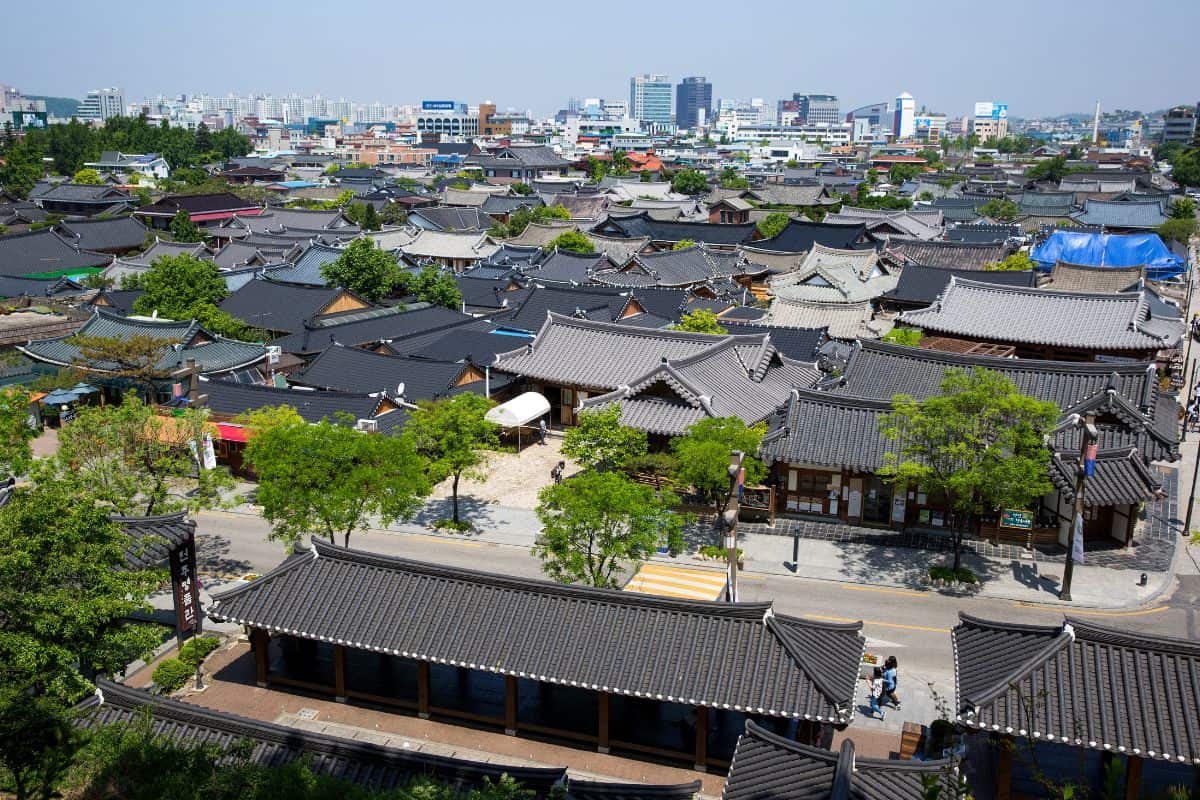
Jump to:
🏘️ Discovering the History of Hanoks
The term "hanok," surprising to many, was only coined relatively recently, dating back to the late nineteenth century. This is because as Western-style architecture began to emerge in Korea, there was a newfound need to distinguish traditional Korean homes from these foreign structures.
Before this, since almost all buildings were inherently Korean houses, there was no necessity for a specific term. The earliest usage of 'hanok' can be traced to present-day Jeongdong-gil in Seoul, where traditional tile-roofed houses first stood alongside newly erected Western buildings.
This created the context wherein a distinct term became essential for clear architectural identification and cultural preservation. It wasn't until 1975 that hanok found its way into the Korean dictionary, defined as houses built in the traditional Korean architectural style.
The term itself is a blend of two Chinese characters, "han" (韓), symbolizing "the Korean people," and "ok" (屋), meaning "house."
Thus, hanok directly translates to "house of Korea" or "house of the Korean people." While some argue the "han" represents the short-lived Korean Empire (Daehanjeguk, 1897-1910), the continued use of the term encompasses all Korean people and their land.
The character "ok" is versatile, referring not only to dwelling houses but also to buildings in general. Consequently, hanok includes a diverse array of traditional buildings that vary widely in form and design and are shaped by regional and historical influences.
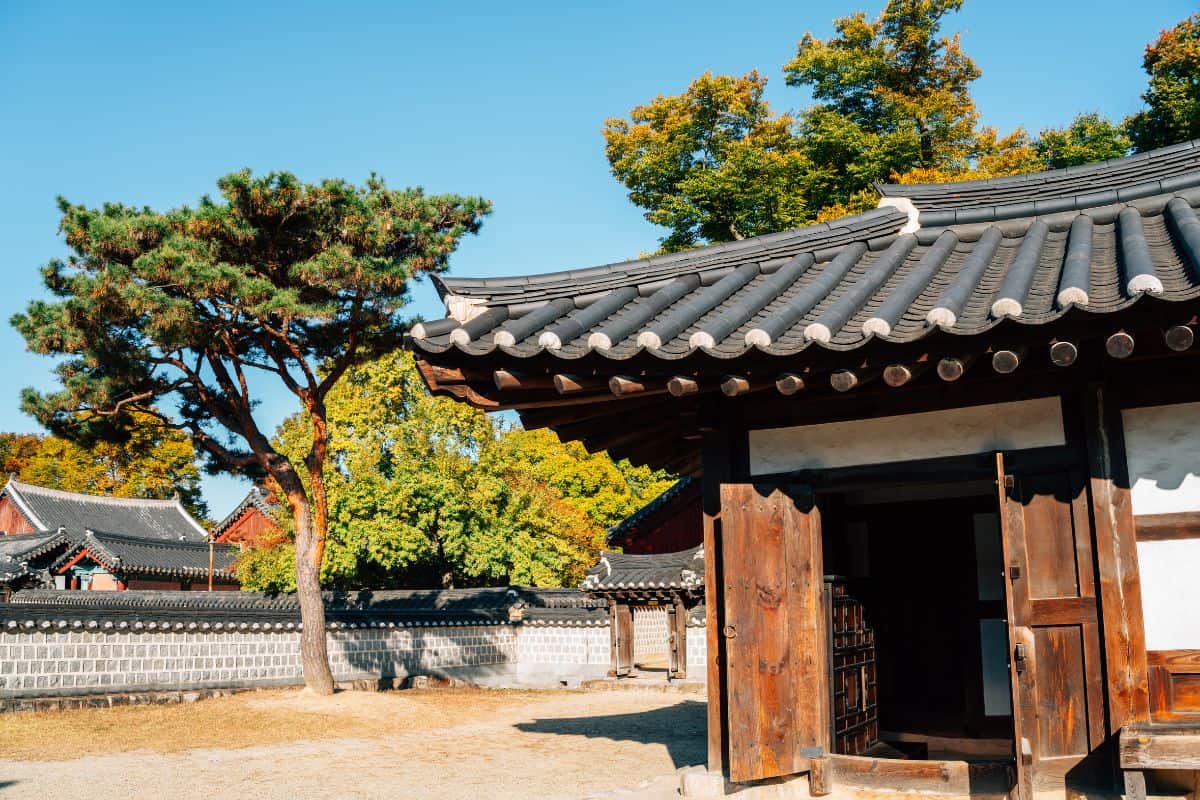
🏠 Best Hanok Stays in Jeonju
Jungdam Hanok Homestay (Private Hanok)
Address: 30, Godeoksan 1-gil, Wansan-gu, Daeseong-dong, Jeonju-si, Jeonbuk-do, South Korea
Maximum Guests: 8 people
Nestled in the serene rural neighborhood of Daeseong-dong in Jeonju, Jeongdam Hanok Homestay offers an authentic Korean experience, providing the perfect blend of traditional architecture and modern comforts. The 1300-square foot hanok boasts of a picturesque two-story structure featuring a cozy room, bathroom, living room, and fully-equipped kitchen on the first floor.
Upstairs, visitors will find a spacious room and an inviting attic, ideal for relaxation on warm summer days. The kitchen is well-stocked, while a separate barbecue area, equipped with a small assortment of equipment, allows for fun and leisurely Korean BBQ right outside this beautiful Jeonju accomodation.
For entertainment, guests can enjoy karaoke, traditional Korean games like yunnori and jegichagi, or a refreshing game of badminton. Really exploring the things to do in Jeonju somewhat necessitates having a car, so the free on-site parking is likely to come in handy no matter how long you're staying.
Both large rooms in the hanok also have essential amenities such as air conditioning, televisions, and separate luggage storage. In addition to the mountains, guests will be surrounded by stunning historical buildings and have access to traditional restaurants and attractions like the Gwanseong Shrine and Donggosanseong Fortress.
GaeEunChae
Address: 68-13, Hanji-gil, Wansan-gu, Jeonju-si, Jeonbuk-do, South Korea
Maximum Guests: 5 people per room
GaeEunChae offers a true hanok experience in Jeonju Hanok Village. Made from wood without nails - as was typical before their introduction - it’s perfect for exploring & experiencing Jeollabuk Province's cultural heritage. The village's scenic alleys add to the accomodation's charm, while the outdoor garden and courtyard, with its hand-trimmed stone, creates an authentic feel.
Each of the rooms feature sleek wooden finishes, upgraded bathrooms, traditional sliding doors, and ondol heated floors for cozy evenings in the fall and winter. Guests can walk to nearby attractions like the Jeonju Craft Masters Hall, the Traditional Wine Museum, Seunggwangjae (home of the last Joseon prince), and the Dakjong Hanji Doll Workshop.
Rooms range from simple doubles with private bathrooms, air conditioning, and mini-fridges, costing $40 for two people and $47 for up to four. On the other end are deluxe family rooms for up to five guests, which range from $52 to $65 USD depending on the season. GaeEunChae is close to shops, cafes, and the famous Jeonju Korean Liquor Museum - if fully booked, consider GaeEunChae2 for a similar stay.
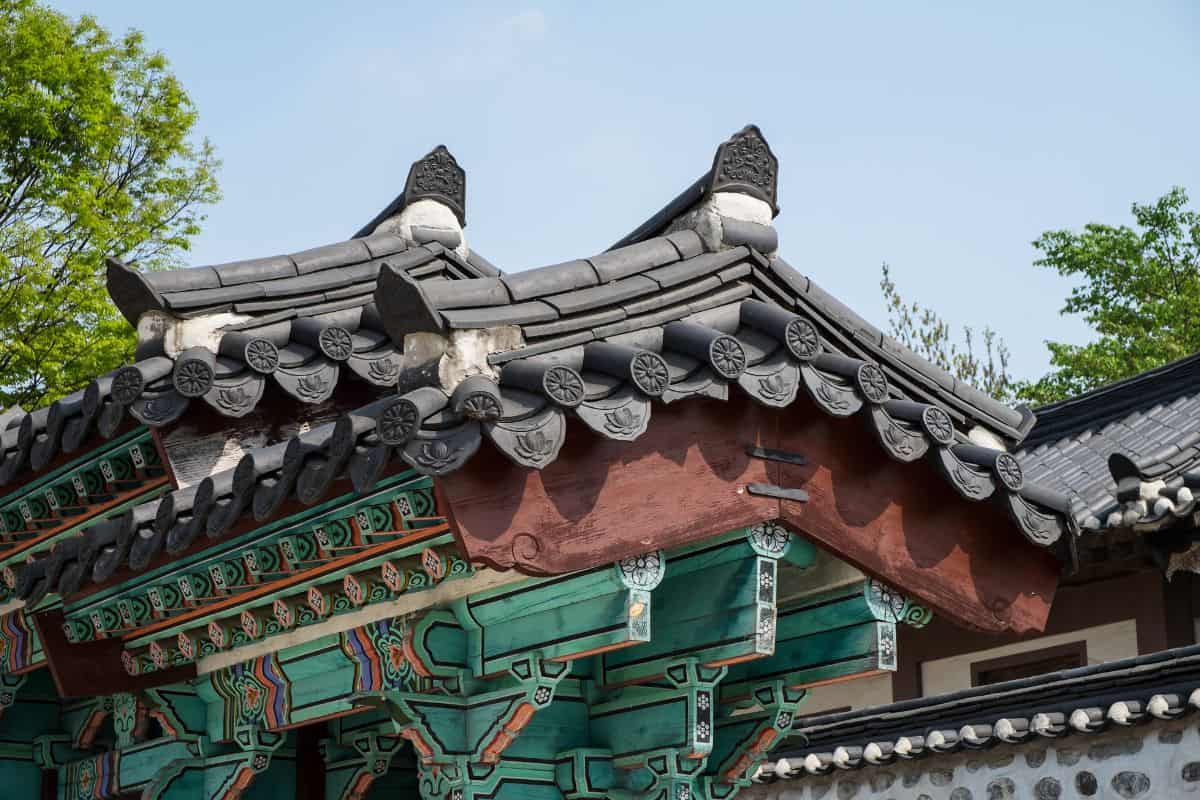
Pungnam House Jeonju
Address: 98-4 Gyo-dong, Wansan-gu, Jeonju-si, Jeollabuk-do, South Korea
Maximum Guests: 4 people per room
Also tucked away in the renowned Jeonju Hanok Village, Pungnam House in Jeonju offers a picturesque stay that beautifully embodies the essence of traditional Korean architecture. This charming hanok provides a variety of accommodations, including double rooms with private bathrooms available at $35 USD per night, and family rooms for four people at $63 USD per night.
No matter the price, each room at Pungnam House is equipped with essential amenities like air conditioning, a television, and a mini-fridge to ensure a comfortable stay. Guests can also enjoy a simple breakfast included in the room price, and there's an on-site kitchen available for those who prefer to prepare their meals.
One of the standout features of Pungnam House Jeonju is its expansive garden area, perfect for guests looking to spend some relaxing time outdoors while admiring the stunning exterior of the building. The hanok's prime location places it wihtin wlaking distance of significant cultural sites such as the Gyeonggijeon Shrine and the Royal Portrait Museum.
Additionally, it’s just a short walk away from the Jeonju Tourist Information Center, numerous restaurants with traditional Jeonju foods, cozy cafes, and many other top attractions in Jeonju, making it an ideal base for short-term visitors.
Starlight Rest Area
Address: 42-9 KR, Hyanggyo-gil, Wansan-gu, Jeonju-si, Jeollabuk-do, South Korea
Maximum Guests: 3 people per room
Also known as Star Rest House or 별빛쉼터 (starlight shelter) on Google Maps, Starlight Rest Area is a delightful hanok stay in Jeonju, perfect for travelers seeking out peace and comfort. This charming accommodation offers double rooms with private bathrooms at an affordable rate of $34 USD per night.
Each room has the standard amenities of air conditioning, a television, and a mini-fridge, but some rooms boast picturesque garden views, enhancing the serene experience of staying in this traditional Korean house. There's even a shared kitchenette is available for guests to use, for those who plan to stay for longer or make their own Korean-style breakfasts each morning.
Nestled near the banks of the Jeonjuchun River, guests can also enjoy leisurely morning or sunset strolls along the water, soaking in the beautiful natural surroundings. Conveniently located just south of Jeonju Hanok Village, Starlight Rest Area offers easy access to the town's most beloved attractions while providing a tranquil retreat away from the bustling crowds the Village attracts during high season.
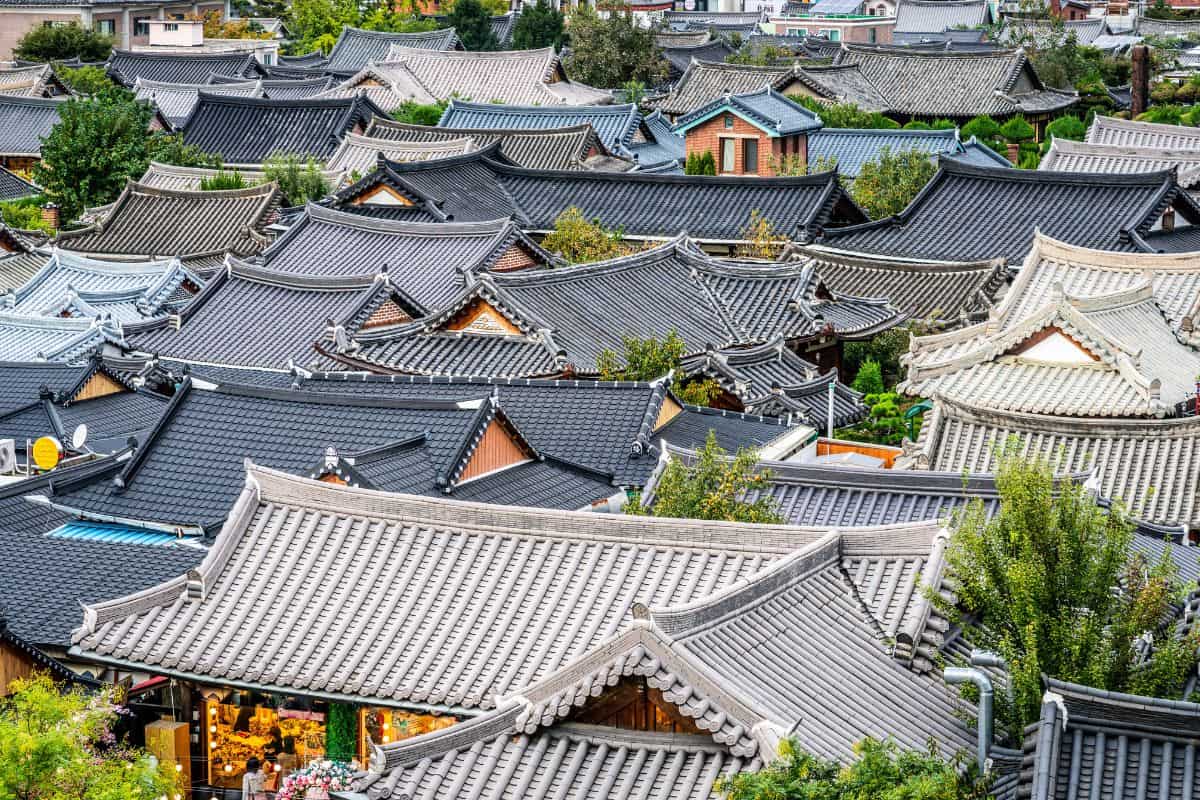
Laon Hanok Gguljam
Address: 99-6 Hanji-gil, Wansan-gu, Jeonju-si, Jeollabuk-do, South Korea
Maximum Guests: 3 people per room
Laon Hanok Gguljam offers unique, two-story accommodation in Jeonju, with picturesque views over Jeonju Hanok Village from its wrap-around balcony. Each Korean-style family room is designed to comfortably host two to three guests (plus one child), and room rates range from $41-$53 USD.
Fun Fact: the phrase 'gguljam' is Korean slang for 'something very fun,' so this hanok's name would be considered kind of cutesy in Korean.
The rooms are a harmonious blend of modern renovation and traditional touches, equipped with essential amenities, including air conditioning, private bathrooms, and TVs in each space. Guests can also enjoy a complimentary, simple breakfast each morning, and for those desiring additional food and coffee, an on-site cafe is open on the second floor.
Located on the eastern edge of Jeonju’s cultural center, Laon Hanok Gguljam is perfectly positioned for explorers. Overlooking the historic Hanok Village, this charming hotel allows guests easy access to major attractions like the Omokdae hilltop overlook, which offers even more stunning village vistas.
The vibrant Jaman Mural Village, famed for its colorful and creative street art, is just a short walk away. Both attractions are integral to a fulfilling one-day Jeonju itinerary, making Laon Hanok Gguljam an ideal base for travelers keen to immerse themselves in the local culture and scenic beauty of Jeonju.
🙋 Frequently Asked Questions
The quickest way to reach Jeonju Hanok Village from the station is to take a taxi, which takes about 6-10 minutes and costs around ₩9,000-₩12,000. This is great if you have luggage, but for a cheaper choice, take Bus #1000. The bus ride is 10-15 minutes and costs ₩1,200, and it also stops at popular attractions like Jeonju Zoo and Jeonbuk National University. Note that if you're coming by KTX train on a day trip to Jeonju, the village is just a 6-minute walk from the station.
From Jeonju Hanok Village you can start by visiting Gyeonggijeon Shrine, which houses the portrait of King Tae-jo, the founder of the Joseon Dynasty. Another must-see nearby is the Jeonju Hyanggyo Confucian School, an ancient educational institution, while Omokdae hilltop overlook offers stunning views of the village, and the vibrant Jaman Mural Village is perfect for exploring colorful and creative street art.
Yes, my favorite place to eat in Jeonju for traditional Korean cuisine is Hanguk Jip, known for its Jeonju-style bibimbap, or having a sampling of Korean street food at Nambu Market. For a cozy cafe experience, you can also visit one of the many cafes in the area, which offer everything from specialty coffee to tasty Korean-style desserts.

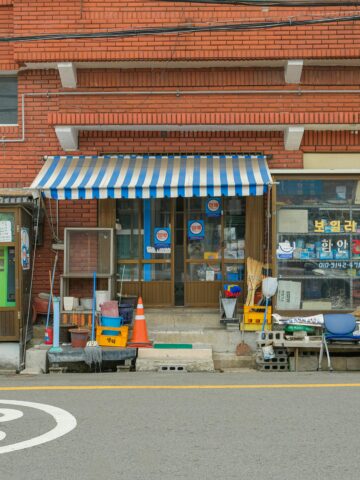
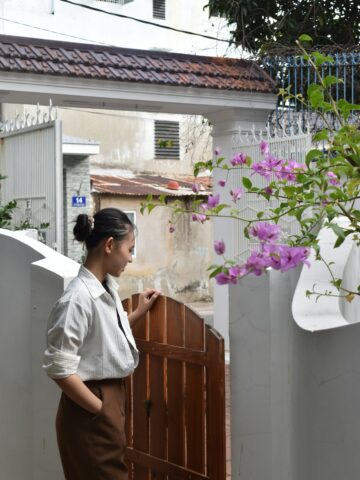
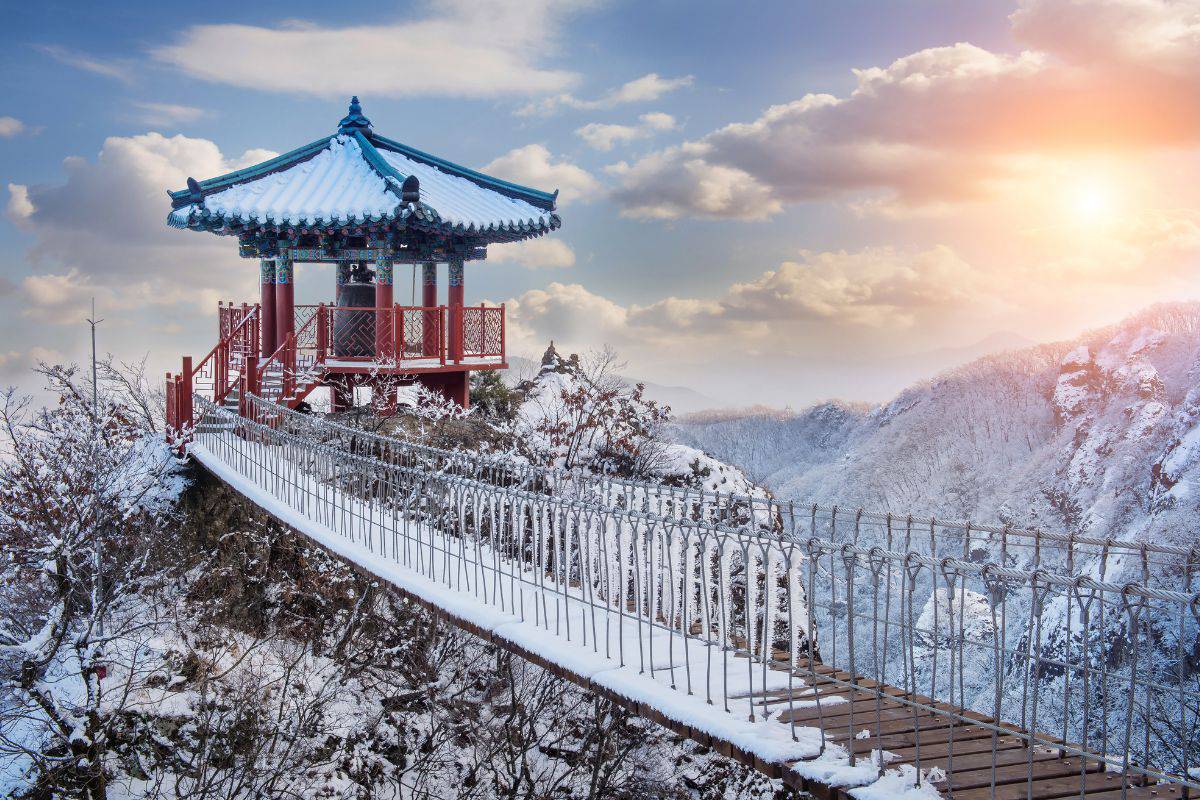
Comments
No Comments